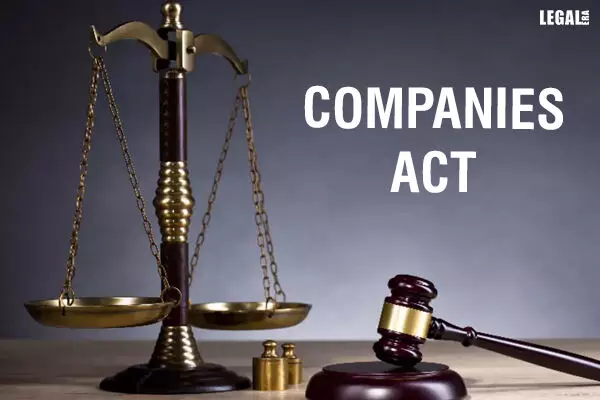- Home
- News
- Articles+
- Aerospace
- Artificial Intelligence
- Agriculture
- Alternate Dispute Resolution
- Arbitration & Mediation
- Banking and Finance
- Bankruptcy
- Book Review
- Bribery & Corruption
- Commercial Litigation
- Competition Law
- Conference Reports
- Consumer Products
- Contract
- Corporate Governance
- Corporate Law
- Covid-19
- Cryptocurrency
- Cybersecurity
- Data Protection
- Defence
- Digital Economy
- E-commerce
- Employment Law
- Energy and Natural Resources
- Entertainment and Sports Law
- Environmental Law
- Environmental, Social, and Governance
- Foreign Direct Investment
- Food and Beverage
- Gaming
- Health Care
- IBC Diaries
- In Focus
- Inclusion & Diversity
- Insurance Law
- Intellectual Property
- International Law
- IP & Tech Era
- Know the Law
- Labour Laws
- Law & Policy and Regulation
- Litigation
- Litigation Funding
- Manufacturing
- Mergers & Acquisitions
- NFTs
- Privacy
- Private Equity
- Project Finance
- Real Estate
- Risk and Compliance
- Student Corner
- Take On Board
- Tax
- Technology Media and Telecom
- Tributes
- Viewpoint
- Zoom In
- Law Firms
- In-House
- Rankings
- E-Magazine
- Legal Era TV
- Events
- Middle East
- Africa
- News
- Articles
- Aerospace
- Artificial Intelligence
- Agriculture
- Alternate Dispute Resolution
- Arbitration & Mediation
- Banking and Finance
- Bankruptcy
- Book Review
- Bribery & Corruption
- Commercial Litigation
- Competition Law
- Conference Reports
- Consumer Products
- Contract
- Corporate Governance
- Corporate Law
- Covid-19
- Cryptocurrency
- Cybersecurity
- Data Protection
- Defence
- Digital Economy
- E-commerce
- Employment Law
- Energy and Natural Resources
- Entertainment and Sports Law
- Environmental Law
- Environmental, Social, and Governance
- Foreign Direct Investment
- Food and Beverage
- Gaming
- Health Care
- IBC Diaries
- In Focus
- Inclusion & Diversity
- Insurance Law
- Intellectual Property
- International Law
- IP & Tech Era
- Know the Law
- Labour Laws
- Law & Policy and Regulation
- Litigation
- Litigation Funding
- Manufacturing
- Mergers & Acquisitions
- NFTs
- Privacy
- Private Equity
- Project Finance
- Real Estate
- Risk and Compliance
- Student Corner
- Take On Board
- Tax
- Technology Media and Telecom
- Tributes
- Viewpoint
- Zoom In
- Law Firms
- In-House
- Rankings
- E-Magazine
- Legal Era TV
- Events
- Middle East
- Africa
NCLAT Rules Procedural Orders Consolidating Petitions Not Appealable Under Section 421 Companies Act

NCLAT Rules Procedural Orders Consolidating Petitions Not Appealable Under Section 421 Companies Act
In an appeal challenging the National Company Law Tribunal’s (NCLT) directive to consolidate multiple company petitions concerning Sections 241 and 242 of the Companies Act, 2013, and referring them to the NCLT Chairperson for bench nomination to prevent conflicting judgments, a division bench consisting of Sharad Kumar Sharma, J. (Judicial Member), and Jatindranath Swain (Technical Member), ruled that the NCLT’s procedural order does not materially adjudicate the parties' rights and hence is not appealable under Section 421 of the Companies Act.
The appellants contested an order from the NCLT, Chennai, which mandated the consolidation of several company petitions involving similar issues under Sections 241 and 242 of the Companies Act. They argued that the NCLT's denial of interim relief affected their rights, making the order appealable. However, the NCLAT countered that the appeal was laden with voluminous records (1312 pages) without substantial cause, highlighting inefficiency and unnecessary strain on tribunal resources.
Clarifying the matter, the NCLAT noted that the phrase "the court is not inclined to grant any interim relief, ‘at this juncture’," was misconstrued by the appellants as a denial of interim relief, which was not the case. The tribunal explained that interim relief was deferred due to the pending decision on consolidation, not on its merits. The NCLAT corrected the appellants' interpretation that the denial of interim relief affected their rights.
Emphasizing its decision, the NCLAT stated that procedural orders that do not adjudicate substantive rights are not appealable. It underscored that the order to consolidate petitions was procedural and did not decide any legal dispute on its merits or affect the rights of any party involved. Therefore, the NCLAT concluded that the order directing consolidation of petitions is not appealable under Section 421 of the Companies Act.
Consequently, the NCLAT dismissed the appeal, clarifying that the dismissal of the present appeal did not impact the pending application for interim relief, which would be adjudicated on its merits once the consolidation order is implemented.



